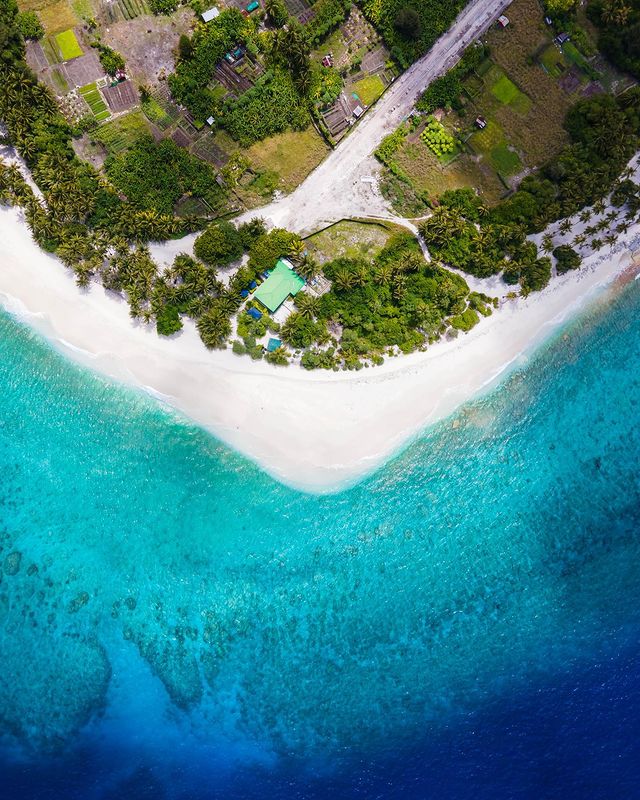
Discover Fuvahmulah Island, The One Island Atoll
Sharing is caring!
Published on 25 Sep, 2025
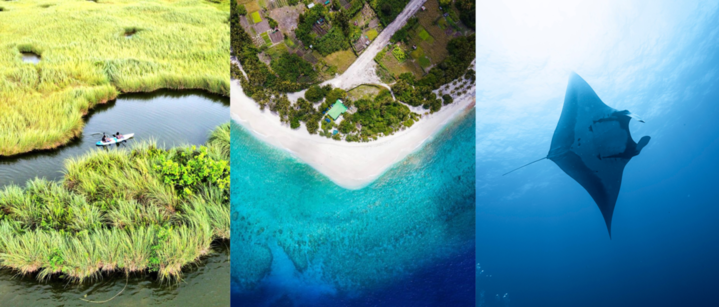
In the heart of the Indian Ocean lies a solitary island unlike any other in the Maldives. Far from the overwater villas and crowded resort chains, Fuvahmulah offers an experience steeped in raw nature, vibrant culture, and some of the most thrilling underwater adventures on Earth. Its name, derived from the word Fuvah, meaning “areca nut,” hints at a past wrapped in tropical abundance and a present that is just as richly layered.
In the heart of the Indian Ocean lies a solitary island unlike any other in the Maldives. Far from the overwater villas and crowded resort chains, Fuvahmulah offers an experience steeped in raw nature, vibrant culture, and some of the most thrilling underwater adventures on Earth. Its name, derived from the word Fuvah, meaning “areca nut,” hints at a past wrapped in tropical abundance and a present that is just as richly layered.
A Language of Its Own
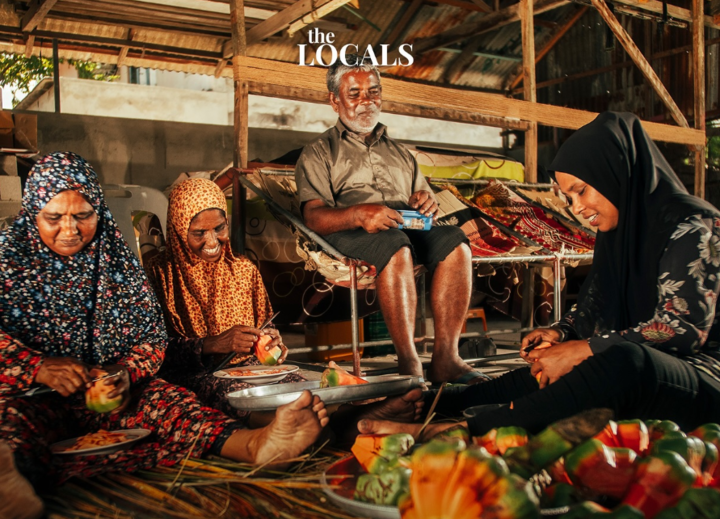
📸@Aliasadhu
One of the island’s most fascinating aspects is its unique dialect Fuvahmulaki baha a variation of the national language, Dhivehi, that reflects the island’s cultural autonomy and strong local identity. Conversations on the island carry the cadence of a people rooted deeply in their traditions, even as they welcome visitors with warmth and openness.
A Landscape that Defies the Maldives Stereotype
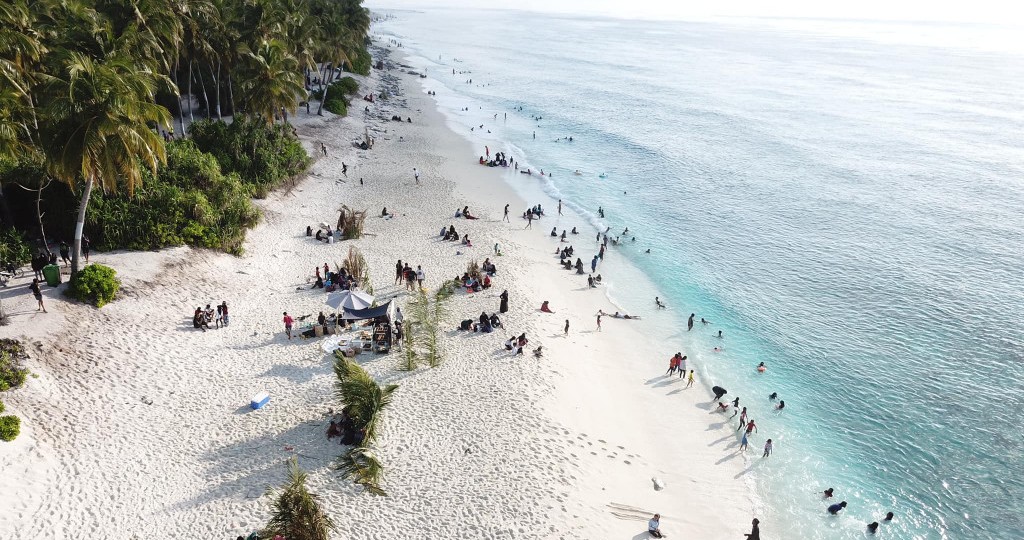
Unlike the circular atolls that define much of the Maldives, Fuvahmulah is a single, stand-alone island an emerald jewel floating freely in the sea. This unique geography allows for a surprising diversity in landscape. Inland, thick tropical vegetation flourishes, while two freshwater lakes Dhadimagu Kilhi and Bandaara Kilhi mirror the sky in perfect stillness, attracting herons, moorhens, and migratory birds throughout the year.
On the northern coast, Thoondu Beach unveils a surreal spectacle: a stretch of smooth, gleaming white pebbles unlike any other in the archipelago. Here, sunsets pour across the sky in hues of gold and rose, casting an ethereal glow on the ocean's edge.
The island’s natural bounty doesn’t end at its shores. Coconut palms, banana groves, and farmlands extend through Fuvahmulah’s interior, nourished by nutrient-rich soil and age-old agricultural traditions. The result is a Maldivian island with an almost tropical rainforest character lush, fertile, and full of life.
Diving into the Deep: Fuvahmulah’s Underwater Legacy
For the global diving community, Fuvahmulah is nothing short of legendary. Recognized as one of the world’s top diving destinations, the island has earned its title as “The Home of Tiger Sharks.” Here, divers can witness these majestic creatures year-round, an experience few places on Earth can offer.
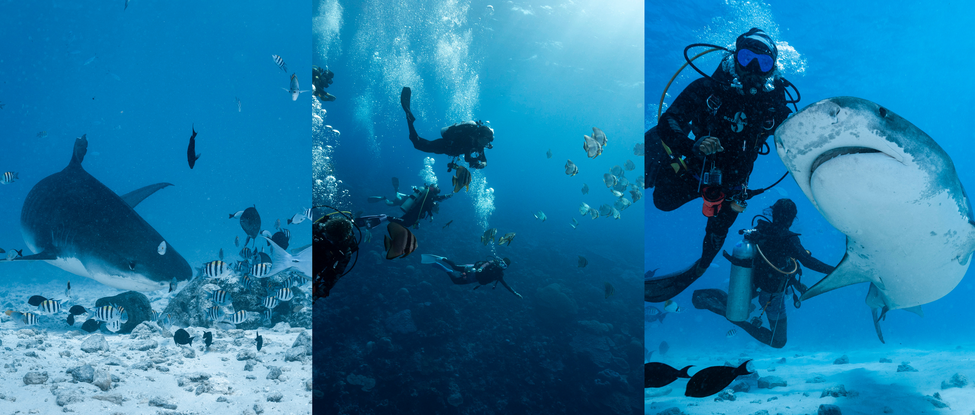
But the thrill doesn’t stop there. The island’s steep underwater drop-offs open into the open ocean, attracting a spectacular variety of pelagic life. From elusive thresher sharks and powerful hammerheads to graceful manta rays and the gentle giants whale sharks Fuvahmulah offers encounters that redefine what it means to explore the sea.
Dive sites such as the iconic Tiger Zoo promise guaranteed shark sightings, while coral gardens and reef walls present vivid panoramas for underwater photography. Whether you’re an experienced diver or a curious beginner, Fuvahmulah Scuba Club provide expert guidance, and carefully crafted packages that include accommodation, meals, and domestic flights.
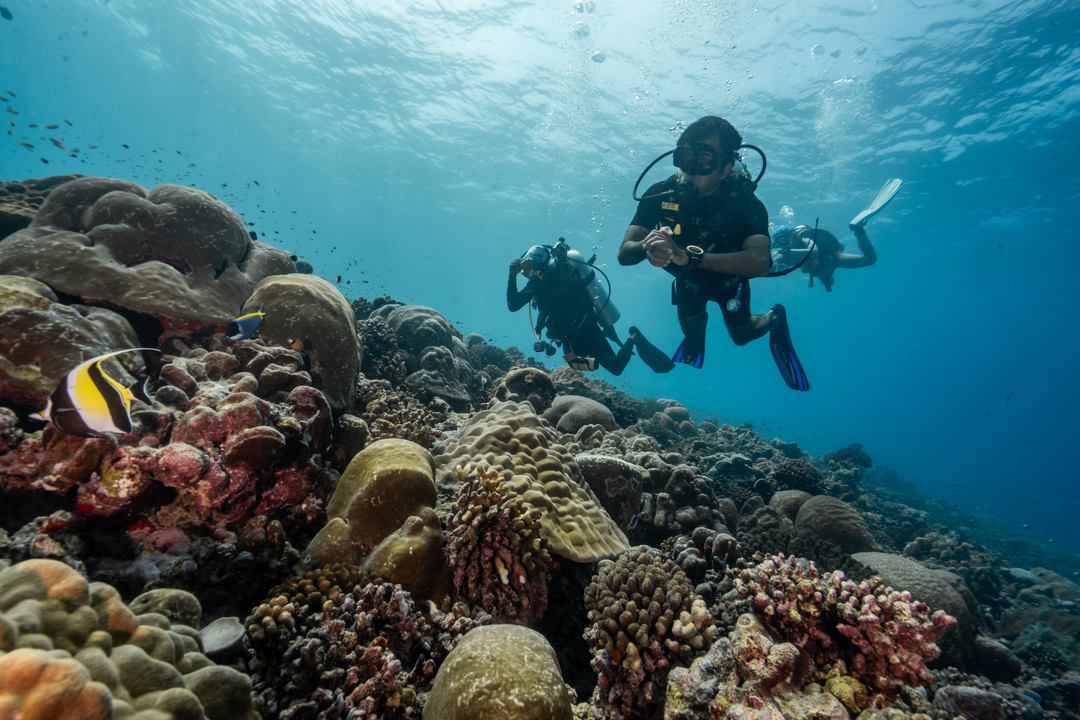
And for those who prefer to stay closer to the surface, the snorkeling and freediving here are equally captivating. The crystal-clear waters, abundant with life, offer unforgettable glimpses into the thriving reef ecosystems.
Culture and Community: The Beating Heart of Fuvahmulah
What sets Fuvahmulah apart isn’t just what lies beneath its waters, but the spirit that pulses through its people. This is an island that balances progress with preservation, where ancient customs live alongside modern life.
The traditional way of life is still very much alive. Many families rely on farming and fishing, just as their ancestors did, while the architecture of homes blends thatched-roof styles with contemporary design. Artisans keep cultural heritage alive through liyelaa jehun (lacquer work), mat weaving, and handcrafting goods from natural materials like palm leaves and coconut shells.
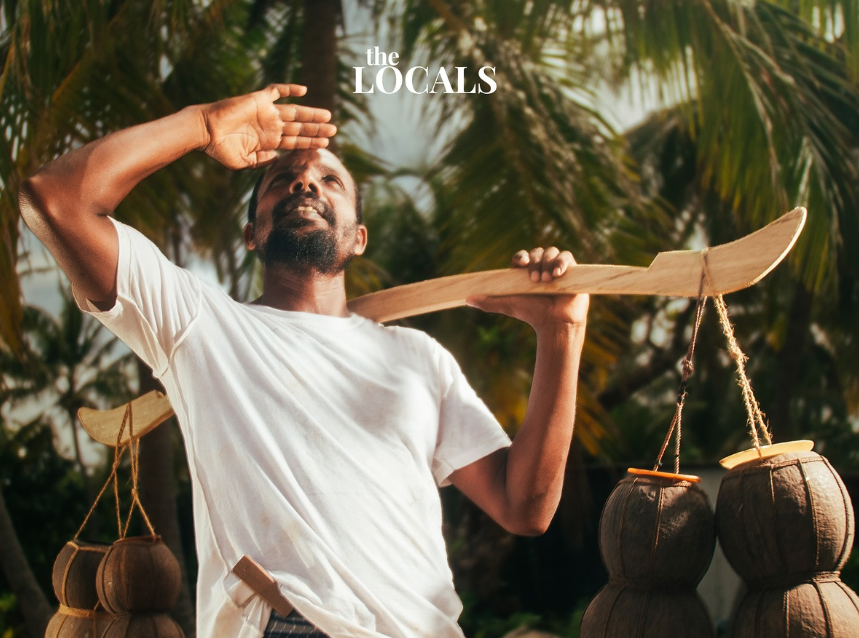
📸@Aliasadhu
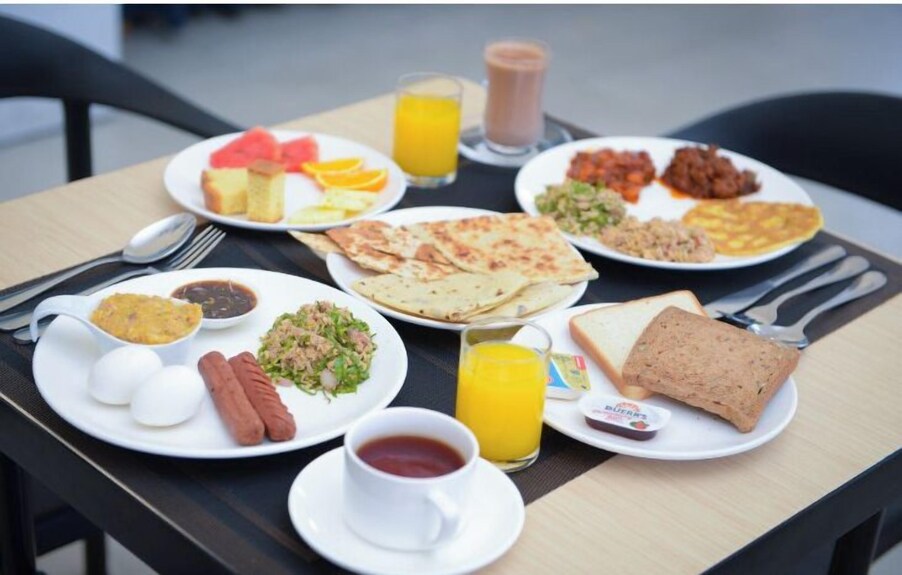
The culinary landscape is another journey of discovery. From mas huni, a flavorful blend of tuna, coconut, and spices enjoyed at breakfast, every bite tells a story of tradition, sea, and spice. Some local cafés serve meals the Maldivian way rich in flavor and heart.
A Leader in Sustainability and Conservation
While Fuvahmulah is renowned for its diving, it is equally admired for its commitment to environmental sustainability. The island is a champion of marine conservation, playing a key role in enforcing the Maldives' shark sanctuary regulations established in 2010. Dive operators and NGOs collaborate on coral restoration, marine research, and citizen science programs focused on preserving biodiversity.
On land, the island continues to innovate. Community-led recycling efforts, composting in agriculture, and plastic-free campaigns are shaping a greener future. Freshwater lakes and wetlands are protected under local initiatives, and tree-planting drives aim to preserve Fuvahmulah’s terrestrial biodiversity. Schools and youth groups are engaged in education campaigns, ensuring that future generations grow up with a deep sense of environmental responsibility.
Even tourism is shaped by these values. Many guesthouses and dive centers operate with low-impact principles embracing solar energy, water conservation, and eco-friendly designs that blend seamlessly into the landscape.
Getting There: Your Journey to Fuvahmulah
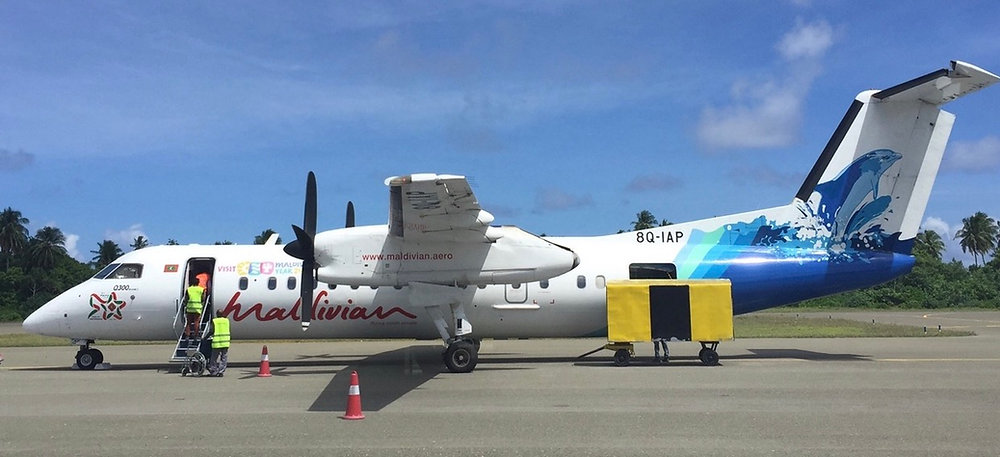
Reaching this southern marvel is easier than many imagine. Domestic flights operated by Maldivian Airlines connect Velana International Airport in Malé directly to Fuvahmulah Airport in just 1 hour and 25 minutes. Flights run multiple times daily, and dive operators like Fuvahmulah Scuba Club can arrange all domestic transfers and accommodations for a seamless experience.
Passengers are allowed 25 kg of free checked baggage and 5 kg of hand baggage, with additional allowance available for a nominal fee. It’s a smooth, scenic journey that ends where adventure begins.
Tags
Recent Articles
-
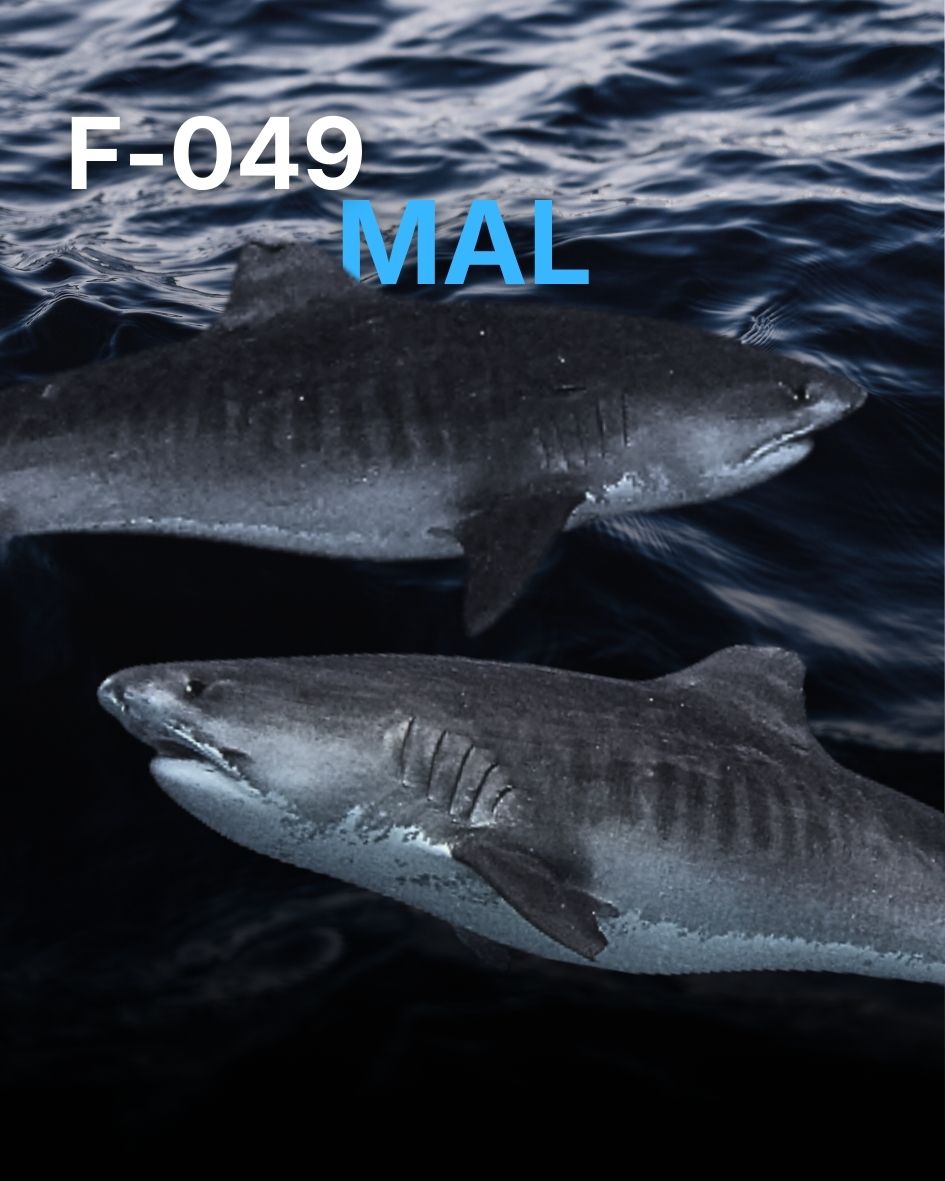 An Encounter, Explained: Meeting MAL (F-049)Research Dec 30, 2025
An Encounter, Explained: Meeting MAL (F-049)Research Dec 30, 2025 -
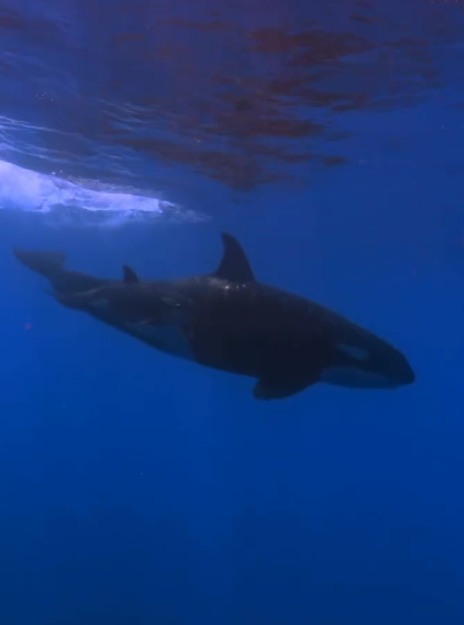 A Rare Orca Encounter in Fuvahmulah – A Historic Moment in the MaldivesStory Dec 26, 2025
A Rare Orca Encounter in Fuvahmulah – A Historic Moment in the MaldivesStory Dec 26, 2025 -
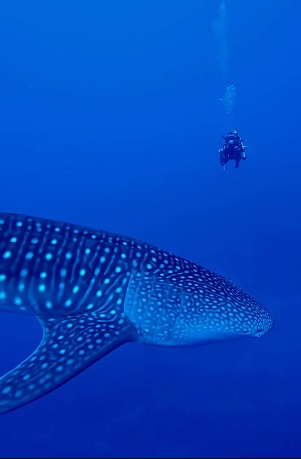 Rare Whale Shark Sighting in Fuvahmulah – December 14, 2025Story Dec 26, 2025
Rare Whale Shark Sighting in Fuvahmulah – December 14, 2025Story Dec 26, 2025 -
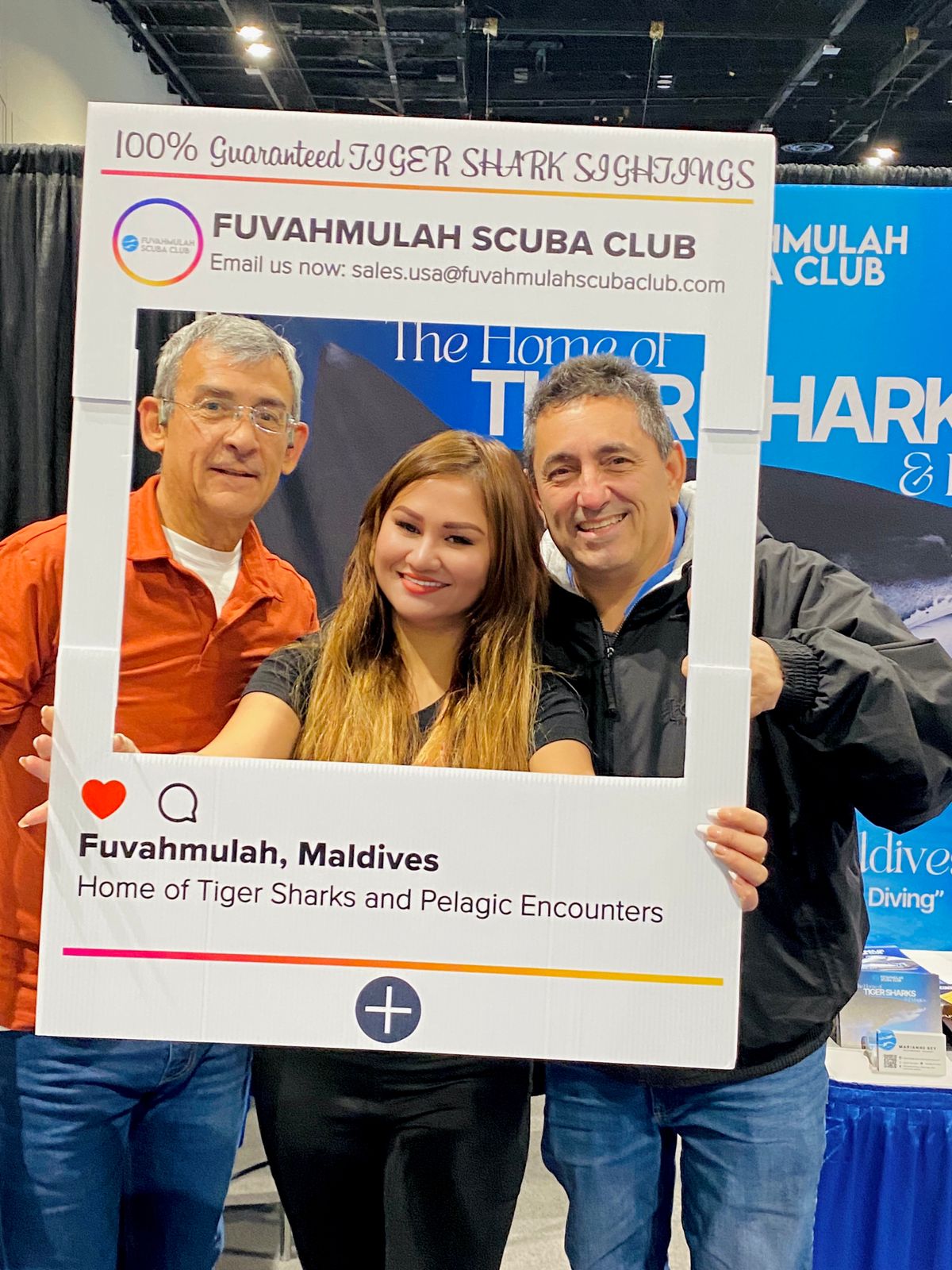 Showcasing the Maldives’ Wildest Dive Destination at DEMA SHOW 2025Story Dec 16, 2025
Showcasing the Maldives’ Wildest Dive Destination at DEMA SHOW 2025Story Dec 16, 2025 -
 Fuvahmulah Unveiled: The Maldives’ Best-Kept SecretIsland Experiences Dec 16, 2025
Fuvahmulah Unveiled: The Maldives’ Best-Kept SecretIsland Experiences Dec 16, 2025